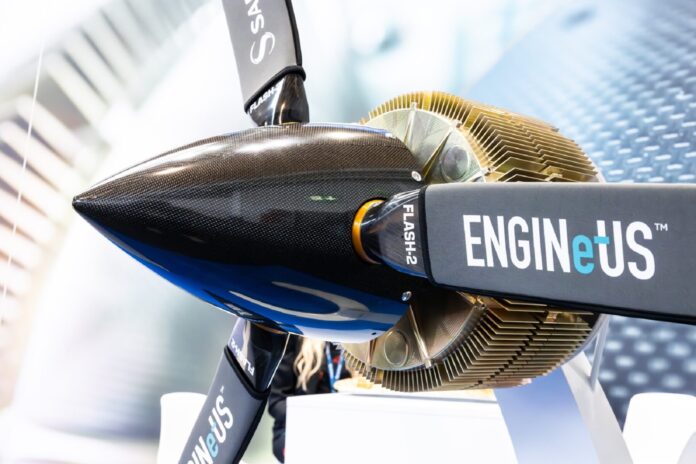French aerospace giant Safran has secured certification from the European Aviation Safety Agency (EASA) for its ENGINeUS 100 electric motor.
The ENGINeUS 100 electric motor is capable of powering small regional transport aircraft with up to 19 passengers, with the potential to usher in a new era of commercial air mobility.
It is the first time that an electric motor of its size and capability has been approved by EASA, requiring 1,500 hours of certification tests and more than 100 flight hours on an aircraft in real-world conditions.
“We have just witnessed a key moment in the history of aviation,” said Bruno Bellanger, CEO of Safran Electrical & Power, on February 2, 2025. “By obtaining certification for the ENGINeUS 100 electric motor, Safran Electrical & Power has achieved a world first. For Safran Electrical & Power and its institutional partners, this event represents an immense source of pride.”
In 2020, EASA certified the electric powered two-seater aircraft Pipistrel Velis Electro, along with its E-811-268MVLC engine, and was approved as a CS-LSA category aircraft or ‘Light Sport Aeroplane’.
However, Safran was awarded the first type certificate for an engine that complies with Special Condition SC E-19, the world’s first Special Condition for electric and/or hybrid propulsion systems.
The ENGINeUS has been developed to power small two to four passenger aircraft, hybrid-electric propulsion for 19-passenger small regional transport aircraft and future generations of commercial aircraft engines, capable of carrying 150 passengers.
“The electric ENGINeUS 100 series is starting with the B1 model now certified, initially planned for installation on a two-seater aircraft. The aim is to extend the series to a greater power range (from 89 KW to 180 KW), a baseline to allow for wider application in up to 19-seater aircraft,” said EASA.
Safran Electrical & Power is preparing to mass-produce the ENGINeUS range with the creation of four semi-automated production lines in 2026 in Niort (France) and Pitstone (UK), enabling production of more than 1,000 electric motors per year, with capacity to increase production.
According to Safran, the new motor can be “easily integrated into all propulsion architectures, thanks to its compactness, lightness and its air-cooling system and delivers maximum power of 125 kW, with an unrivalled weight-to-power ratio of 5 kW/kg”.
Future flight companies that have already opted for Safran’s ENGINeUS motor range or GENeUS motor-generators include AURA AERO, Bye Aerospace, CAE, Diamond Aircraft, Electra, TCab Tech and VoltAero.
“This was a fascinating project for EASA, and the first test of our Special Condition designed for the certification of hybrid and all-electric propulsion,” said Rachel Daeschler, EASA Certification Director. “EASA is fully committed to support the development and certification of propulsion technologies aimed at decarbonizing aviation. We congratulate Safran for this key achievement, which is paving the way for electrification of aviation, for small airplanes and beyond.”

